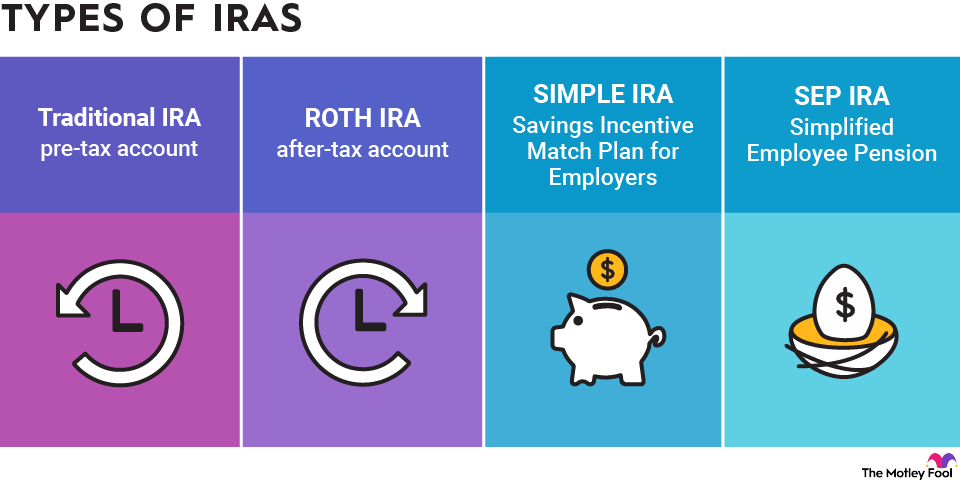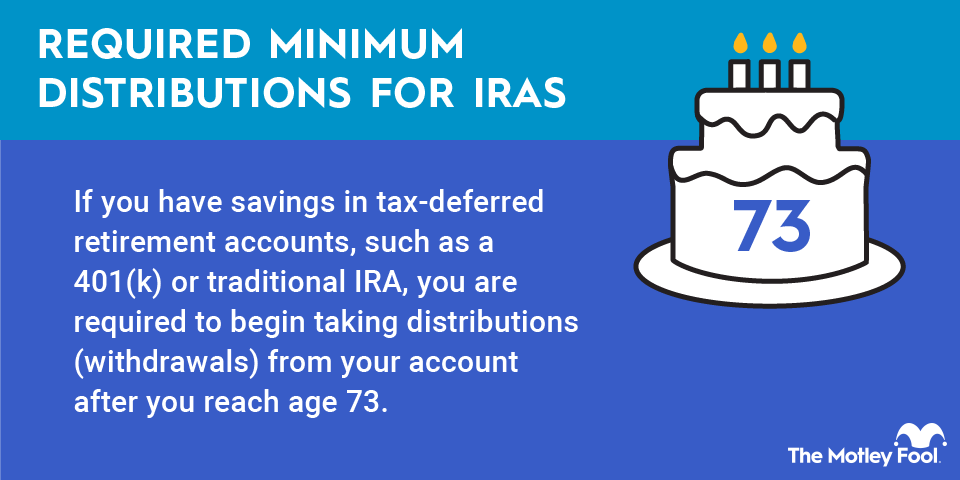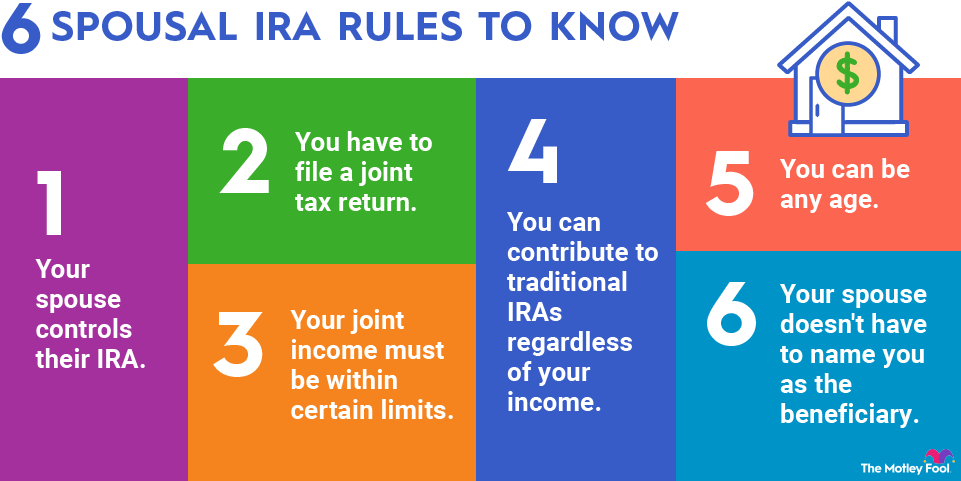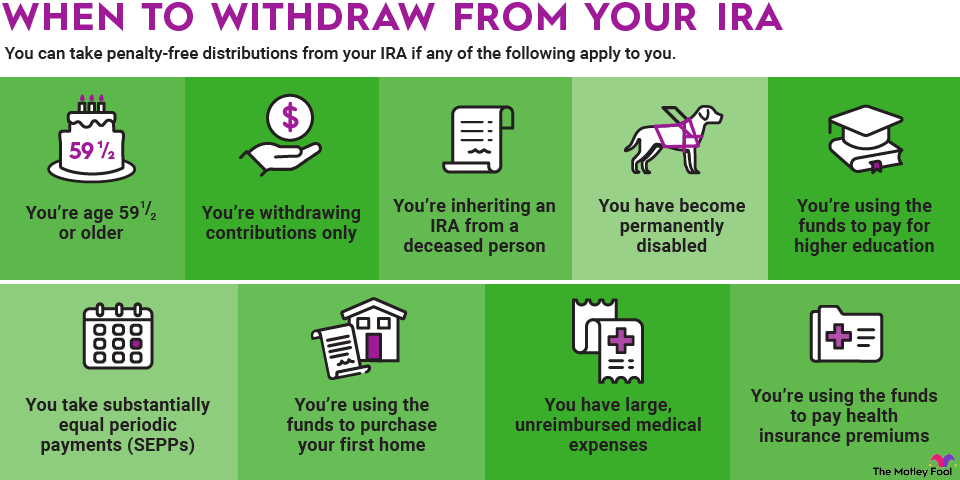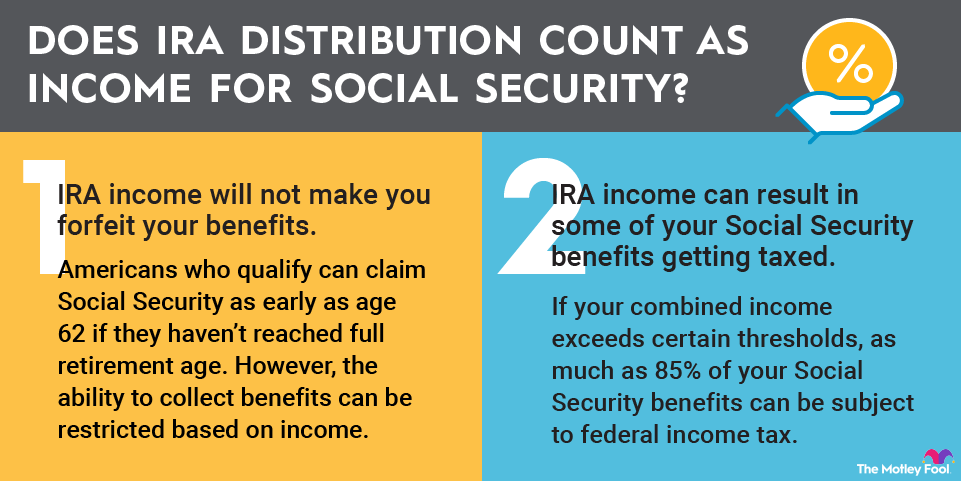Roth vs. traditional IRAs: Tax breaks
Traditional IRAs provide tax savings in the year you make the contributions to the account, but you pay taxes when you withdraw the money. If you contribute $1,000 to a traditional IRA in 2026, you may be able to reduce your taxable income by $1,000. If you're in the 22% tax bracket, the contribution could save you $220 in taxes because you don't have to pay taxes on the $1,000.
Roth IRAs do not provide any tax benefits in the year you contribute. If you make a $1,000 contribution to your Roth IRA in 2026, your taxable income won't be affected at all. You won't reduce your tax bill this year.
However, you're allowed to take tax-free withdrawals from Roth IRAs as long as you follow the rules for withdrawing the funds. That means that if you take $1,000 out of your Roth IRA as a retiree, you will not owe any taxes on the money then.
By contrast, distributions from your traditional IRA are considered to be taxable income. If you take $1,000 from your account as a retiree, your taxable income will be $1,000 higher, and you'll owe taxes on the $1,000 at whatever your tax rate is at that time.
If you expect you will be taxed at a higher rate as a senior than you are now, you should contribute to a Roth IRA. If you expect you will be taxed at a lower rate as a senior, you should contribute to a traditional IRA. You always want to pay taxes when your rate is lower.
Of course, there's more to the comparison. Let's take a deeper dive into the key differences.
Eligibility for the accounts differs
You're not allowed to contribute to a Roth IRA if you make more than the income limits. While you can use a backdoor Roth IRA to get money into this account, you cannot directly make a contribution to one.
The rules are different for a traditional IRA. If neither you nor your spouse is eligible for a workplace retirement plan, you can make tax-deductible contributions to a traditional IRA no matter what you earn.
If either you or your spouse does have a workplace plan, you lose eligibility to make deductible IRA contributions at a certain income threshold. You can still make non-deductible contributions and benefit from tax-deferred gains, but you are not allowed to take a deduction for your contribution in the year it is made.



